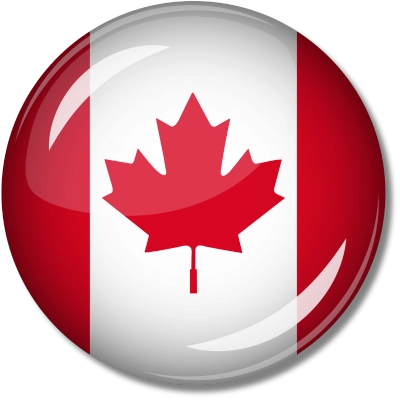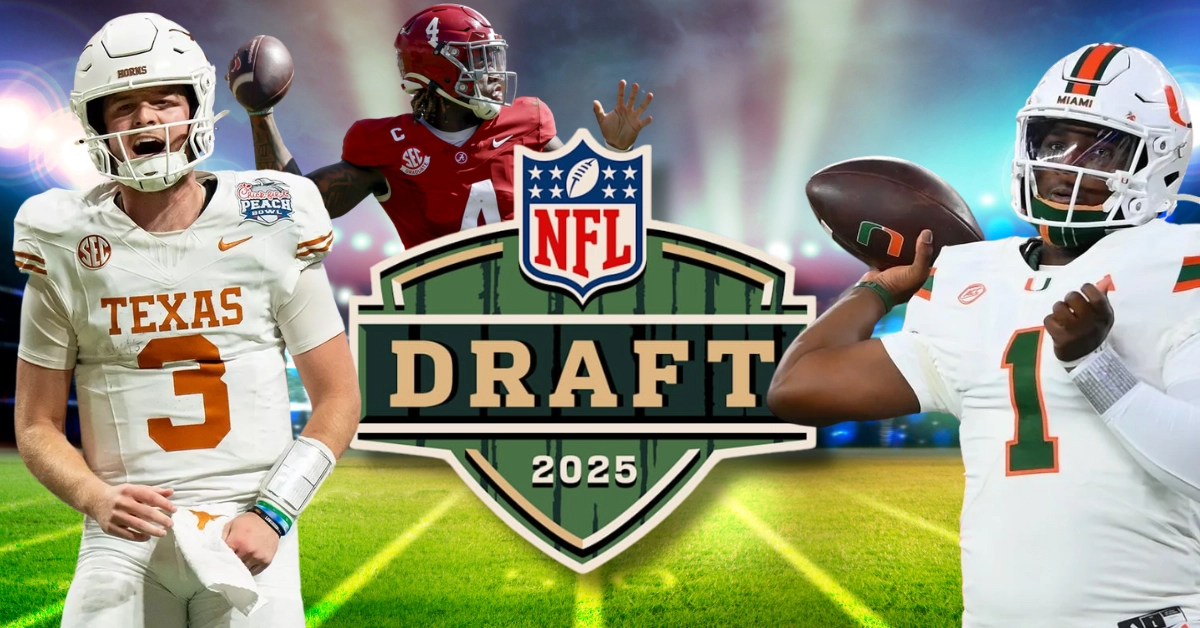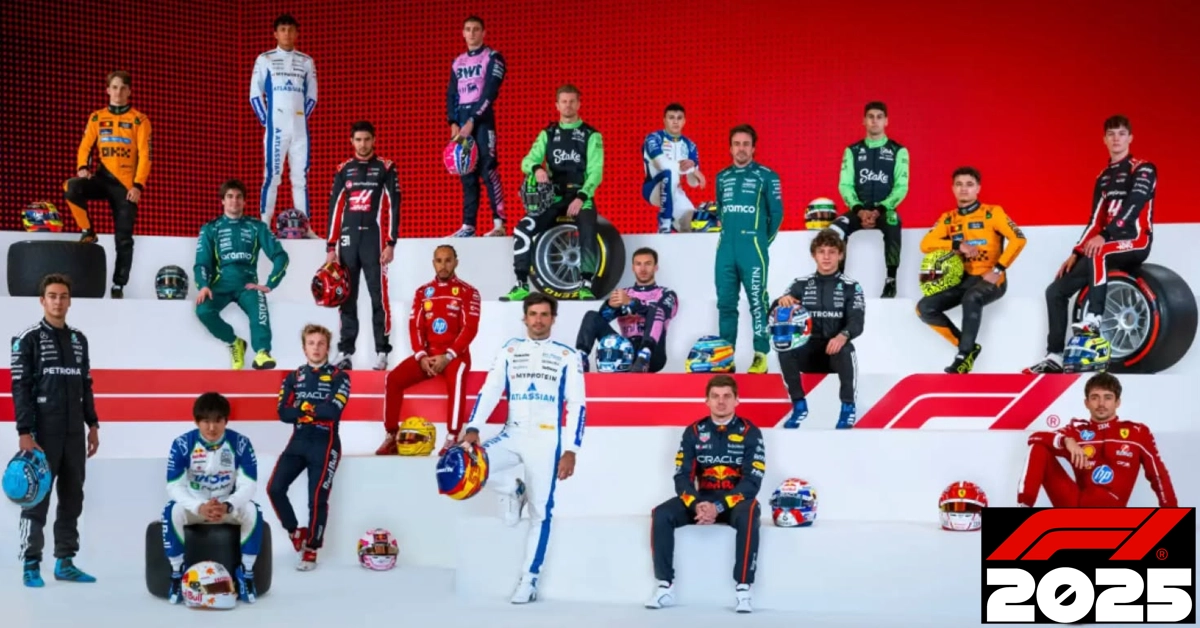Countries with the Best Responsible Gambling Frameworks
Responsible gambling has become a critical focus for countries worldwide—governments, regulators, and industry players are all working together to create safer gambling environments. And because of the abundance of online gambling sites and the ease of access to all kinds of betting activities, the need for strong frameworks has never been more urgent. The frameworks are designed not only to protect players but also to uphold ethical standards within the gambling industry.
We are going to unpack the main elements that define effective, responsible gambling frameworks and take a look at the countries that are leading the way. From the established regulatory systems in the United Kingdom to some innovative policies in Singapore, let’s find out what exactly makes some nations ahead of the curve and what lessons other countries can learn from them!
What Makes a Strong Responsible Gambling Framework?
Gambling will continue to grow in popularity—that’s not up for debate—and having a strong and responsible gambling framework is a much-needed safety net for players and a guide for operators. But what does it actually take to make sure gambling remains an enjoyable pastime and not a harmful one? Below are the core elements that set the basis for a responsible gambling system.
Definition and Purpose
At its essence, a responsible gambling framework is a structured approach to ensuring that gambling activities are conducted in a way that protects players, supports vulnerable people, and promotes ethical practices.
The primary goal is to balance the excitement of gambling with safeguards that minimize potential harm. Think of it as a set of guardrails designed to keep players on a safe path while allowing the industry to flourish.
The framework isn’t just about laws and policies—it’s also about shaping a culture where gambling is treated as entertainment, not a means of escaping financial or emotional difficulties. The main principles include the following:
- Preventing Harm: This means putting measures in place that will identify at-risk players early and give them the tools to regain control over their gambling habits.
- Protecting Minors and Vulnerable Groups: Effective frameworks enforce strict age limits and prevent marketing practices that could exploit those who are more susceptible to addiction.
- Encouraging Ethical Behavior Among Operators: Licensed operators are expected to act with integrity, which means prioritizing player safety over profits.
- Promoting Awareness: By educating players about risks, frameworks empower individuals to make informed decisions.
Core Features of Effective Frameworks
A strong framework is like a puzzle where every piece plays an important role. Below is a comprehensive list of the features that define an effective system:
The cornerstone of any responsible gambling framework is player protection. When players feel supported, they’re less likely to fall into patterns of harmful behavior. Effective measures include:
– Self-Exclusion Programs: These let players voluntarily block themselves from gambling for a specific period. Programs like GamStop in the UK have nationwide exclusion across multiple operators, and that gives players a simple and effective tool to take control.
– Spending and Time Limits: Most gambling platforms have options to set daily, weekly, or monthly spending caps. Similarly, time reminders or session limits encourage players to take breaks and think about their gaming habits.
– Reality Checks: Notifications that pop up during play remind users how long they’ve been gambling, which means they are aware of their behavior.
Behind every strong framework is a regulatory body that holds operators accountable. The authorities aren’t just the enforcers of the rules—they’re the architects of a fair and safe gambling ecosystem!
– Licensing Requirements: Operators must meet strict criteria to obtain and maintain their licenses, ensuring they prioritize player safety.
– Audits and Compliance Checks: Regular monitoring guarantees that operators continue to follow the rules. Non-compliance results in hefty fines or license suspensions, which sends a loud and clear message that cutting corners isn’t an option.
– Anti-Money Laundering Measures: Regulators help prevent criminal activity in the gambling industry by monitoring suspicious transactions.
Advertising is both a good and a not-so-good aspect in the gambling world. Obviously, it’s a must for businesses so that they can attract customers, but it can also inadvertently and unintentionally encourage unhealthy habits where gambling is concerned.
– No Targeting Vulnerable Audiences: Responsible advertising avoids exploiting vulnerable groups, like minors or those who are recovering from gambling addiction.
– Balanced Messaging: Campaigns should stress moderation and include responsible gambling warnings. For instance, phrases like “Set your limits” will remind players that they should gamble mindfully.
– Clear Bonus Terms: Misleading promotions are a huge red flag. A strong framework verifies that any offers or bonuses are transparent and don’t have any hidden conditions.
No responsible gambling framework is complete without a safety net for those who need it. The systems make sure that help is always within reach for the players who are facing challenges.
– Hotlines and Counseling Services: Players can reach out to trained professionals for guidance and support.
– Partnerships with Health Organizations: By collaborating with addiction experts, regulatory bodies can offer well-rounded resources for recovery.
– Community Education Programs: Outreach initiatives lessen the stigma and encourage more open conversations about gambling addiction, and that makes it easier for players to get help.
Weak vs. Strong Frameworks
Think that all frameworks are built the same? Think again! In regions with weaker systems, gambling operators can exploit loopholes, which means more players are vulnerable to harm. Let’s compare:
- Weak Frameworks: Typically lack enforcement, fail to penalize non-compliant operators, or have limited tools for player protection. Advertising can also be super misleading and encourage players to gamble excessively.
- Strong Frameworks: Combine preventative tools, strict regulations, and public education to build a safer gambling environment. They also adapt to any and all emerging challenges, like the surge of online gambling, which means a guarantee of continued relevance and effectiveness.
By comparing these two extremes, it is obvious that a strong framework is proactive, player-centered, and adaptable!
Top Countries With Exemplary Responsible Gambling Frameworks
Now that we’ve established what defines a strong framework let’s take a look at the countries that are showing up! The nations below have implemented systems that not only safeguard players but also demonstrate how regulation can coexist with industry growth.
1- United Kingdom
The United Kingdom has always been recognized as a global leader in responsible gambling due to the following measures:
- Regulatory Body: The UK Gambling Commission (UKGC) oversees all licensed operators, ensuring they adhere to rigorous standards. The UKGC also constantly updates its policies to address emerging challenges, such as the rise of online gambling.
- Player Protection Initiatives: The UK is home to GamStop, a free self-exclusion service that allows players to block themselves from all online gambling sites licensed in the UK. Additionally, operators are required to conduct affordability checks to prevent players from spending beyond their means.

- Advertising Restrictions: The UK’s approach to advertising is super strict. Operators must avoid glamorizing gambling or targeting vulnerable populations. Campaigns are required to include messages promoting moderation, such as “When the fun stops, stop.”
- Accountability Measures: Operators face big financial penalties for non-compliance. In 2023 alone, the UKGC imposed millions of pounds in fines for breaches related to player safety and advertising violations.
2- Australia
Australia’s gambling regulation is different from others—each state is responsible for its own framework.
- Regulatory Bodies: Authorities like the Victorian Commission for Gambling and Liquor Regulation (VCGLR) verify that operators comply with state-specific rules. The decentralized approach allows for tailored strategies.
- Harm Minimization Tools: Australia is a pioneer in tools like pre-commitment systems, which allow players to set spending limits before starting to gamble. Self-exclusion options are also widely available across venues and online platforms.

- Public Awareness Campaigns: Slogans like “Gamble Responsibly” are more than just copywriter catchphrases—they’re part of a national effort to normalize conversations about responsible gambling. The campaigns are supported by scientific research into gambling behavior, and that helps their effectiveness.
3- Sweden
Sweden’s responsible gambling framework is both centralized and comprehensive.
- Regulatory Body: Spelinspektionen, Sweden’s gambling authority, oversees the licensing and operation of all gambling activities within the country.
- Self-Exclusion System: Sweden’s Spelpaus program is a standout feature. It allows players to self-exclude from all licensed operators through a single platform, which is convenient and effective.

- Licensing Standards: Operators must meet strict requirements, including offering responsible gambling tools and refraining from aggressive marketing practices. The measures all promote a safer gambling environment.
4- Canada
Canada’s approach to responsible gambling highlights the importance of collaboration between regulators and health organizations.
- Provincial Frameworks: Each province has its own system, with Ontario setting a strong example through iGaming Ontario, a regulatory body that integrates player protections directly into its licensing framework.
- Health Organization Partnerships: Groups like the Responsible Gambling Council (RGC) work closely with provincial regulators to provide resources, conduct research, and develop targeted interventions for at-risk populations.

- Education and Awareness: Canada invests heavily in public awareness campaigns that focus on prevention and early intervention. By educating players about the dangers of gambling, the campaigns help to reduce the stigma and encourage help-seeking behaviors.
5- Singapore
Singapore’s approach to gambling regulation is both innovative and culturally sensitive!
- Regulatory Body: The Casino Regulatory Authority (CRA) ensures operators comply with strict licensing conditions that are designed to prioritize player safety.
- Entry Levies: Locals have to pay an entry fee to access casinos, which in turn discourages frequent visits and impulsive gambling. The policy has been credited with decreasing problem gambling rates among Singaporean residents.

- Support Services: Singapore collaborates with organizations like the National Addictions Management Service (NAMS) to provide counseling and support for those who are or have been affected by gambling addiction.
6- New Zealand
New Zealand takes a community-focused approach to responsible gambling—it stresses harm minimization at all levels.
- Regulatory Body: The Department of Internal Affairs (DIA) monitors gambling operators and ensures they comply with harm minimization policies.
- Community Outreach: Public education campaigns focus on reducing stigma and encouraging open conversations about gambling addiction. These initiatives are tailored to reach diverse populations, including indigenous communities.

- Operator Contributions: Licensed operators are required to allocate a portion of their revenue to funding problem gambling services, which makes sure there is ongoing support for affected people.
Emerging Countries Making Strides in Responsible Gambling
As far as the global conversation about responsible gambling goes, smaller or emerging markets often don’t get the same level of attention as established leaders like the UK or Australia. Yet, these countries are demonstrating that innovation and progress aren’t limited to well-resourced markets. With growing awareness of gambling-related harm and a push for ethical industry standards, several less-developed gambling markets are making big strides.
From regulatory overhauls to community-driven initiatives, these emerging nations are setting examples of how even resource-limited environments can prioritize player safety. Below, we’ll explore some of these efforts, concentrating on South Africa and Malta as prime examples of countries that are showing up to support players!
South Africa: Strengthening Online Oversight
South Africa’s gambling industry has historically been focused on land-based casinos and lottery systems, but the rise of online gambling has posed new challenges. While online gambling remains illegal for unlicensed operators, many offshore platforms still attract South African players, creating regulatory gaps that expose users to risks.
Recent developments, however, signal a shift toward more comprehensive oversight:
- Introduction of Self-Exclusion Tools: South Africa’s National Gambling Board has started exploring tools that allow players to exclude themselves from gambling platforms. The initiatives want to protect vulnerable individuals while also addressing the growing popularity of online gambling.
- Tighter Licensing Requirements: The government has introduced stricter licensing criteria, ensuring operators meet higher standards for player protection. This includes providing clearer information about risks, offering spending limits, and promoting responsible gambling practices.
- Public Awareness Campaigns: Educational programs are being rolled out to inform South Africans about the dangers of unregulated gambling and the resources available to those struggling with addiction.
South Africa’s proactive approach, despite its limited resources, shows a strong commitment to lessening gambling-related harm while supporting a safer gambling culture.
Malta: Leading in Online Gambling Regulation
Although Malta is one of the smallest countries in Europe, it has emerged as a hub for online gambling. The Malta Gaming Authority (MGA) oversees one of the most active online gambling markets in the world, licensing hundreds of operators who serve players across the globe.
However, with great market influence comes great responsibility. Malta has been working to verify that its regulatory framework lines up with the growing focus on player safety by doing the following:
- Mandatory Risk Assessments for Operators: Operators licensed by the MGA are now required to conduct regular risk assessments to identify vulnerabilities in their platforms. These assessments focus on detecting problematic gambling behaviors early and implementing measures to mitigate harm.
- Focus on Transparency: The MGA has introduced guidelines that require operators to clearly outline their responsible gambling tools, such as self-exclusion options, deposit limits, and time tracking. Players must also have access to detailed terms and conditions that don’t have misleading language.
- Collaboration with International Bodies: Malta has partnered with international organizations to share best practices and enhance its regulatory approach. This ensures that its policies remain relevant and effective in a rapidly evolving market.
By leveraging its influence as a global online gambling hub, Malta shows that even small countries can set the highest standards for responsible gambling!
Honorable Mentions: Noteworthy Developments
While South Africa and Malta are shining examples, there are a few other countries that are also making meaningful progress:
- Colombia: As the first Latin American country to regulate online gambling, Colombia has introduced strict player protection measures, including mandatory responsible gambling messaging and monitoring systems to detect dangerous behavior.
- Kenya: After facing criticism for lax regulation, Kenya has introduced higher taxes on gambling operators and launched initiatives to educate players on responsible gambling.
- Philippines: The Philippines is focusing on harm reduction in its rapidly growing online gaming market, with new regulations requiring operators to fund problem gambling services.
Why Emerging Markets Matter
The progress made by these countries shows the universal importance of responsible gambling. Emerging markets face challenges, like limited resources and regulatory loopholes, but their efforts demonstrate that meaningful change is possible. By implementing innovative solutions and learning from global leaders, these countries are proving that size and resources don’t matter or define the quality of a gambling framework—commitment and adaptability do.
Challenges in Implementing Responsible Gambling Frameworks
It is no small feat to build and maintain responsible gambling frameworks! The systems are there to protect players and promote ethical industry standards, but their implementation is a different story that can encounter real-world obstacles that can slow progress or limit their effectiveness. From balancing economic priorities to navigating cultural sensitivities, each country faces its own hurdles in trying to build a safer gambling ecosystem.
Three critical challenges exist: finding equilibrium between industry growth and player safety, addressing cultural attitudes that can complicate regulation, and tackling the enforcement issues posed by online gambling.
One of the most complex challenges is managing the tension between growing the gambling industry and safeguarding players. Gambling is a significant economic driver in many regions, generating billions in revenue, creating jobs, and contributing to government budgets through taxes. However, these financial incentives tend to overshadow the importance of player safety.
– Economic Reliance on Gambling Revenue
– Governments often rely heavily on gambling revenues to fund public services, making introducing strict regulations politically and economically challenging. For instance, measures like advertising bans or caps on betting amounts could result in short-term revenue losses, which will cause pushback from industry stakeholders.
– Operator Resistance: Operators usually resist stricter rules, like mandatory affordability checks or reduced maximum stakes. Businesses argue that measures like these would deter casual gamblers and harm their bottom line. Balancing these concerns with the need to protect vulnerable players takes some thoughtful negotiation and enforcement.
– Navigating Growth in Emerging Markets: In newer gambling markets, governments may prioritize rapid growth over responsible practices, leaving frameworks underdeveloped. Striking a balance between fostering economic opportunity and establishing player protection will remain a pressing challenge in these regions.
Cultural norms and societal views on gambling can greatly influence the success of responsible gambling frameworks. In some countries, gambling is deeply ingrained in traditions, while in others, it carries a stigma that can hinder or outright discourage conversations about problem gambling.
– Normalization of Gambling in Certain Cultures: In countries where gambling is a longstanding tradition, such as Macau or parts of Southeast Asia, introducing tighter restrictions can be perceived as infringing on cultural practices. This makes it harder to gain public support for responsible gambling initiatives.
– Stigma Surrounding Gambling Addiction: In regions where addiction is seen as a personal failing and not as a disease, people will probably think twice about getting help or taking part in harm-reduction programs. Without cultural shifts that lessen this stigma, frameworks are at risk of underutilization.
– Resistance to Foreign-Influenced Policies: Some nations view global responsible gambling standards as imposing Western values, which can lead to resistance against adopting best practices. Tailoring frameworks to local contexts while maintaining international benchmarks is a delicate balancing act.
The surge of online gambling platforms has revolutionized the industry for sure, but it has also created massive enforcement challenges for regulators. Unlike physical casinos, online platforms can operate across borders, making monitoring and controlling their activities difficult.
– Jurisdictional Issues: A lot of online operators are based in countries with lax regulations, meaning they are able to serve players in regions where they are technically unlicensed. A lack of jurisdictional authority undermines local responsible gambling efforts and leaves players vulnerable.
– Unregulated Offshore Platforms: Offshore gambling sites often bypass local regulations entirely, operating in a legal gray area. Players drawn to these platforms will probably not have access to the protections given by licensed operators, like self-exclusion tools or spending limits.
– Technology Gaps in Regulation: Some countries lack the technological infrastructure to monitor and enforce rules online. This can result in weak oversight, allowing operators to exploit loopholes.
– Emerging Risks With Crypto Gambling: The emergence and popularity of cryptocurrency-based gambling platforms have added even more complexity. The sites are harder to trace, usually operate anonymously, and are rarely subject to traditional regulatory frameworks.
Key Lessons and Takeaways From Leading Countries
Countries with exemplary responsible gambling frameworks have several things in common that serve as valuable lessons for others. Their success isn’t solely rooted in regulations—it’s also in the collaborative efforts that bring various stakeholders together and the stress placed on public education.
The main lessons and takeaways are as follows:
- Government Support and Strong Regulations: Effective frameworks rely on firm government backing. Clear laws, strict enforcement, and well-funded regulatory bodies guarantee that operators prioritize player protection and ethical practices.
- Collaboration Among Stakeholders: Partnerships between gambling operators, health organizations, and regulators improve the overall system. By working together, the groups create comprehensive safety nets that address prevention and intervention.
- Public Awareness and Education: Public campaigns are super important in creating a culture of responsible gambling. Educating players about the dangers and available tools not only decreases the stigma–it also empowers people to gamble responsibly.
Conclusion
What do countries with the best responsible gambling frameworks have in common? They all take a multi-faceted approach where regulation, collaboration, and education intersect to create the safest gambling environments possible!
Look below for a quick recap of the leading countries and why they’re in front:
- United Kingdom: GamStop self-exclusion program, affordability checks, and strict advertising standards.
- Australia: State-specific harm minimization tools like pre-commitment systems and public awareness campaigns.
- Sweden: Centralized Spelpaus self-exclusion system and stringent licensing requirements.
- Canada: Collaboration between provincial regulators and health organizations, with a focus on education and awareness.
- Singapore: Entry levies for locals, partnerships with health services, and strong regulatory oversight.
- New Zealand: Community-focused outreach, mandatory operator contributions to support gambling harm services, and culturally tailored initiatives.
A truly sustainable gambling industry hinges on the ability to protect players while also maintaining trust and integrity. When operators prioritize safety and governments enforce meaningful regulations, the industry can thrive—without causing widespread harm. Responsible gambling is not just a moral obligation—it’s a necessity for long-term viability and public support!
As players, regulators, and industry stakeholders, we all play a pivotal role in supporting responsible gambling practices. Always choose gambling platforms that show they are committed to safety, advocate for stronger protections, and encourage conversations about gambling-related harm. When we do this, we can make sure that gambling stays what it is meant to be—entertainment.
FAQs
Understanding responsible gambling and how it’s implemented worldwide can be hard to get your head around! Below are the most common questions about the main concepts and how you can access the tools.
What Is Responsible Gambling?
Responsible gambling refers to practices and policies designed to ensure that gambling remains a safe and enjoyable activity. It involves measures that protect players from harm, promote fair play, and provide support for those struggling with gambling-related issues. Examples include self-exclusion tools, spending limits, and responsible advertising.
Why Is Responsible Gambling Important?
Responsible gambling is so important in regard to protecting people from the financial, emotional, and social harm that is associated with problem gambling. It builds trust in the industry by holding operators accountable and helps to create a balanced environment where entertainment doesn’t come at the expense of player well-being.
Which Country Has the Best Gambling Regulations?
The United Kingdom and Sweden are regarded as the leaders in responsible gambling. The UK’s Gambling Commission sets a high standard with tools like GamStop and strict advertising guidelines, while Sweden’s Spelpaus system has centralized self-exclusion for players. Both countries show a dedicated commitment to player safety and ethical practices.
How Can Players Access Responsible Gambling Tools?
Players can access tools through licensed operators and regulatory bodies. Common options include the following:
– Self-exclusion programs, such as GamStop or Spelpaus.
– Spending limits, which are available through all reputable online gambling sites.
– Support hotlines and counseling services provided by organizations like GamCare or local health agencies.
To find these resources, check your country’s gambling regulatory body or the responsible gambling section on your preferred platform!

Matthew specializes in writing our gambling app review content, spending days testing out sportsbooks and online casinos to get intimate with these platforms and what they offer. He’s also a blog contributor, creating guides on increasing your odds of winning against the house by playing table games, managing your bankroll responsibly, and choosing the slot machines with the best return-to-player rates.








